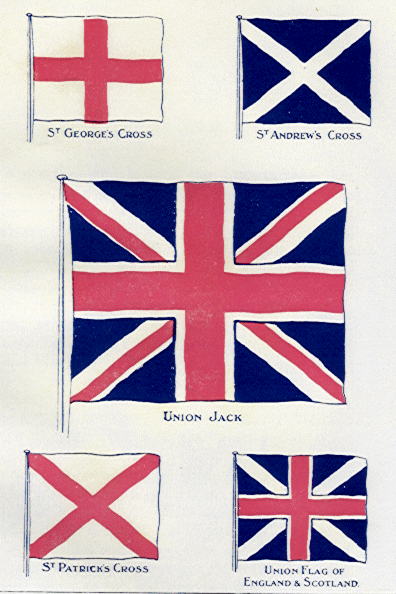



|
W
ILLIAM and Mary had no children, so Mary's sister, Anne,
the younger daughter of
At last a peace was made called the Peace of Utrecht. By
this treaty Louis acknowledged Anne as the rightful Queen of
Britain, and also promised to send James the Pretender, as
the son of
Marlborough was a famous soldier, but he was also a great statesman, and indeed he and his wife, the Duchess of Marlborough, ruled the Queen for many years. He was brave and clever, but he was greedy and not quite honest. He made many enemies, who succeeded at last in having him disgraced, and both he and his wife were sent away from court.
The Duchess had a very bad temper, and she was so angry when she had to leave court that she smashed all the furniture in her rooms, and threw the Queen's keys at the Duke's head, when he was sent to ask for them. It was no wonder that the Queen, who was gentle and kind, had been afraid of the Duchess, and had been ruled by her.
Other clever men succeeded Marlborough, and another clever woman succeeded the Duchess, for Queen Anne was not a strong-minded woman, and she allowed herself to be ruled and led by favourites and statesmen. Like Queen Elizabeth she had many great men around her, and although they thought more perhaps of making themselves famous and powerful than of what was best for the country, still the country prospered.
The greatest thing that happened in the reign of Anne was the union of the Parliaments of England and Scotland.
Since 1603 A.D., when
Wise men saw that there could be no real union until there was only one Parliament, until English and Scots met and discussed the laws together. Cromwell indeed had called English, Scottish, and Irish members to his Parliament, but it had been for so short a time, and in such troubled days that people had almost forgotten about it.
Even now it was not an easy thing to do, but at last all difficulties were smoothed away. It was agreed among other things that each country should keep its own law courts and its own religion, but that they should have the same King, the same Parliament, the same money, and the same flag, and that the country should be called Great Britain.
The English flag was a red

The reason we call our flag the Union Jack is because
When the Queen gave her consent to the act of union, as it
was named, she called both Lords and Commons together, and
made a speech to them. "I desire and expect from all my
subjects of both nations, that from henceforth they act with
all possible respect and kindness
to one another, that so it
may appear to all the world they have hearts disposed to
become one people. This will give me great pleasure." Then
the last English Parliament rose, and, on
It was a great state ceremony. Each Scottish lord was led to his place by two English lords. The Queen in her royal robes made a speech from the throne in which she heartily welcomed the new members, and ever since that day, in spite of difficulties and troubles, England and Scotland have really been one country.
Queen Anne died on